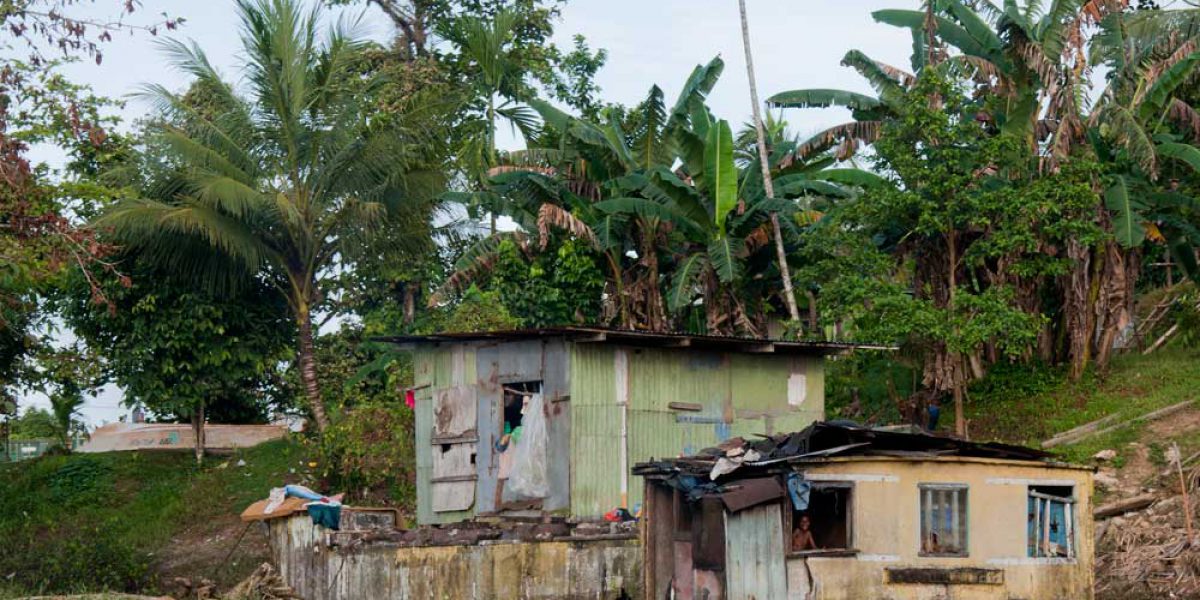Papua New Guinea: Refugees and advocates call for greater legal rights
20 July 2013|Dana MacLean

Kiunga, 20 July 2013— More than 9,000 thousand West Papuan refugees and asylum seekers remain in Papua New Guinea’s Western Province (on the southwest coastal border with Indonesia), in camps, border areas, and urban areas. With displacement stretching on for more than twenty years, refugees are becoming increasingly discouraged by their lack of citizenship and consequent lack of access to basic necessities, such as higher education, employment, and proper housing.
“In the eyes of the world we are sinking, and all that will be left will be our story,” said Teresa* an elderly West Papuan refugee in her mid-70s, living in East Awin, PNG.
The majority of West Papuan refugees in Papua New Guinea originally fled from Indonesia in the 1980s when the Indonesian military ruler Suharto crushed West Papuan attempts to secure independence. While 2,366 refugees have lived in government allocated camps in Iowara-East Awin since the adoption of the 1996 Limited Integration Policy (which required refugees to live in East Awin for a minimum of 6 months before receiving the most basic of rights); 4,567 live in border areas without assistance; and an additional 2,435 are dispersed throughout urban areas, according to a 2012 JRS field report.
“West Papuan refugees continue to suffer from the lack of a durable solution, naturalization, which would enable them to have official status. While livelihoods are a key issue for all residents of Papua New Guinea, refugees are made more vulnerable without any laws to protect them,” said Junita Calder, the Regional Advocacy Officer for JRS Asia Pacific.
Poverty is rife amongst the estimated seven million total population of PNG, making life as a refugee even more challenging. In the face of ongoing citizenship and barriers to higher education, refugees’ hopes for improved housing, access to water and sanitation, and livelihood opportunities continue to dwindle.
In addition, overall population growth in PNG continues to strain limited land resources, according to Oliver White, the head of policy and advocacy for JRS Australia.
“The lack of arable land for refugees to live on as well as the dumping of mine pollution in rivers has degraded refugees’ quality of life,” said White.
An impoverished asylum country
But life for locals is not much easier.
Only 60 percent of all children countrywide in Papua New Guinea attend school, 37.5 percent of people live on less than $1 a day, and 67 percent do not have access to a clean water source, according to the World Bank.
“Most people struggle to survive on a day to day basis. Refugees, who cannot own the houses or land that they live on, face extremely insecure conditions in terms of food and health,” reported White.
More than 2,430 West Papuan refugees live in urban ‘corners’ in impoverished shanties, which provide little protection against wind and rain.
In Port Moresby alone, there are an estimated total of 350,000 people- including refugees, displaced people, and PNG citizens- dwelling on the outskirts of the city in slums, reports the University of Sydney.
“We came here and have no proper houses. People are living in very poor conditions. It is a very challenging situation,” confessed Immaus*, 51, a West Papuan refugee.
Due to overcrowding in urban areas and lack of access to sanitation facilities, the risk of infectious water and vector-borne diseases such as Hepatitis A, typhoid and dengue fevers, as well as malaria, is ‘very high,’ according to the US-based CIA World Factbook.
“[There needs to be] an allocation of land for those West Papuan refugees living in makeshift accommodation on wasted land in urban areas,” said Ben Farrell, the regional spokesperson for UNHCR based in Canberra, to the United Nations IRIN in 2012.
Refugees call for legal rights and government assistance
While the some 2,366 refugees who chose to resettle in East Awin are granted free Permissive Residency Permits (PRPs)- allowing them to access school and health care- the remaining 7,710 refugees in other parts of the country rarely have the US $4,000 to cover the costs of naturalization.
“The fees are prohibitively expensive for most West Papuan refugees,” said White.
“We are deeply concerned about the future of our young people. We want the government to support us with further education for our youth,” said Teresa.
While the UNHCR downsized operations in Papua New Guinea in 2012 and withdrew support for the Iowara-East Awin refugees, public awareness and ongoing legal initiatives will continue throughout 2013, supported by the regional office based in Canberra.
“We sincerely hope that the church, civil society, NGOs, and local community organisations will continue to fill the gaps in social services not yet covered by the government,” said Calder.
Dana MacLean, JRS Asia Pacific Regional Communications Officer
** This article first appeared in the JRS Diakonia publication in June 2013.
** For reasons of confidentiality and protection, names used are not the real names of the refugees.


